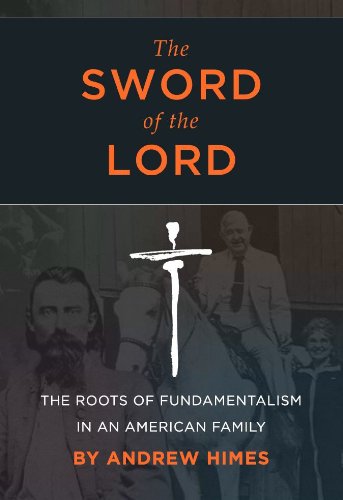I was more than a little surprised when an SFL reader passed along this excerpt from none other than John R. Rice who says very plainly that he doesn’t rule out tongues as being possible in the modern church.
Yes God May Give the Gifts of the Spirit Today, as He Chooses, Just as in Bible Times
Note that the blessed Holy Spirit gives certain gifts to people for the Lord’s service. Do I believe we can have the power of the Holy Spirit just as in Bible times? I certainly do. Nobody had all these gifts in Bible times and, of course, nobody can have all these gifts now in modern times. But, as far as I know, the New Testament churches were set up the same way, and the Bible teaching was the same, and the practices were the same as we ought to have now.
Yes, I believe in the fullness of the Spirit, an enduement of power from on High. I believe in the gifts of the Spirit as God gives them.
Now, here are some lessons, as you see in verses 8 through 10. What are these gifts of the Spirit in verses 8 through 10? To one, the word of wisdom; to another, the word of knowledge; to another, faith; to another, gifts of healing; to another, the working of miracles; to another, prophecy; to another, discerning of spirits; to another, divers kinds of tongues; and to another, interpretation of tongues — all these nine different gifts of the Spirit are mentioned here. Now, what are these gifts for and what about them?
Well, first of all, as far as I know these gifts are still available today. I do not mean available in the sense that you can ask for whatever you want about these gifts. The Bible never does teach that one can decide for himself what gifts to have. The Spirit divides “to every man severally as he will.”
It is true that the Scripture says, “The manifestation of the Spirit is given to every man to profit withal.” I take it that that must mean that some of these works of the Holy Spirit can be the property of every Christian but that one cannot necessarily decide for himself, except that all should seek to prophesy.
We are expressly taught to seek to prophesy. That means speak for God, witness for God, in the power of the Holy Spirit. In Acts 1:8 we are told, “But ye shall receive power, after that the Holy Ghost is come upon you: and ye shall be witnesses unto me …. ” That part we are taught to seek. We are supposed to “covet earnestly the best gifts,” but we are never taught to covet the gift of tongues.
Now, are these gifts for today? They probably are. You would have to remember that they are not very often manifested even in the New Testament times. There is only one clear-cut case of talking in tongues in the Bible and that is in Acts, chapter 2. There are two other cases where languages are mentioned, but the Bible doesn’t say a gift of languages, and maybe it was and maybe it was not. No one has authority to say it was the miraculous gift of tongues since the Bible doesn’t say so. In the tenth chapter of Acts, in Cornelius’ case, and in the nineteenth chapter of Acts, that of a number of Christians at Ephesus, they talked in foreign languages. So let us just say that it was not very often that people had some of these gifts in Bible times.
John R. Rice,Speaking in Tongues
Now granted, Rice’s definition of “tongues” differs from that of most modern day proponents but I still wonder how many modern fundies would completely break fellowship with old John R. for not being a complete and total cessationist. Apparently, the Sword of the Lord who has published his book manages to ignore his belief in sign gifts just as well as they ignore Spurgeon’s Calvinism.
Cognitive dissonance is a beautiful thing.

